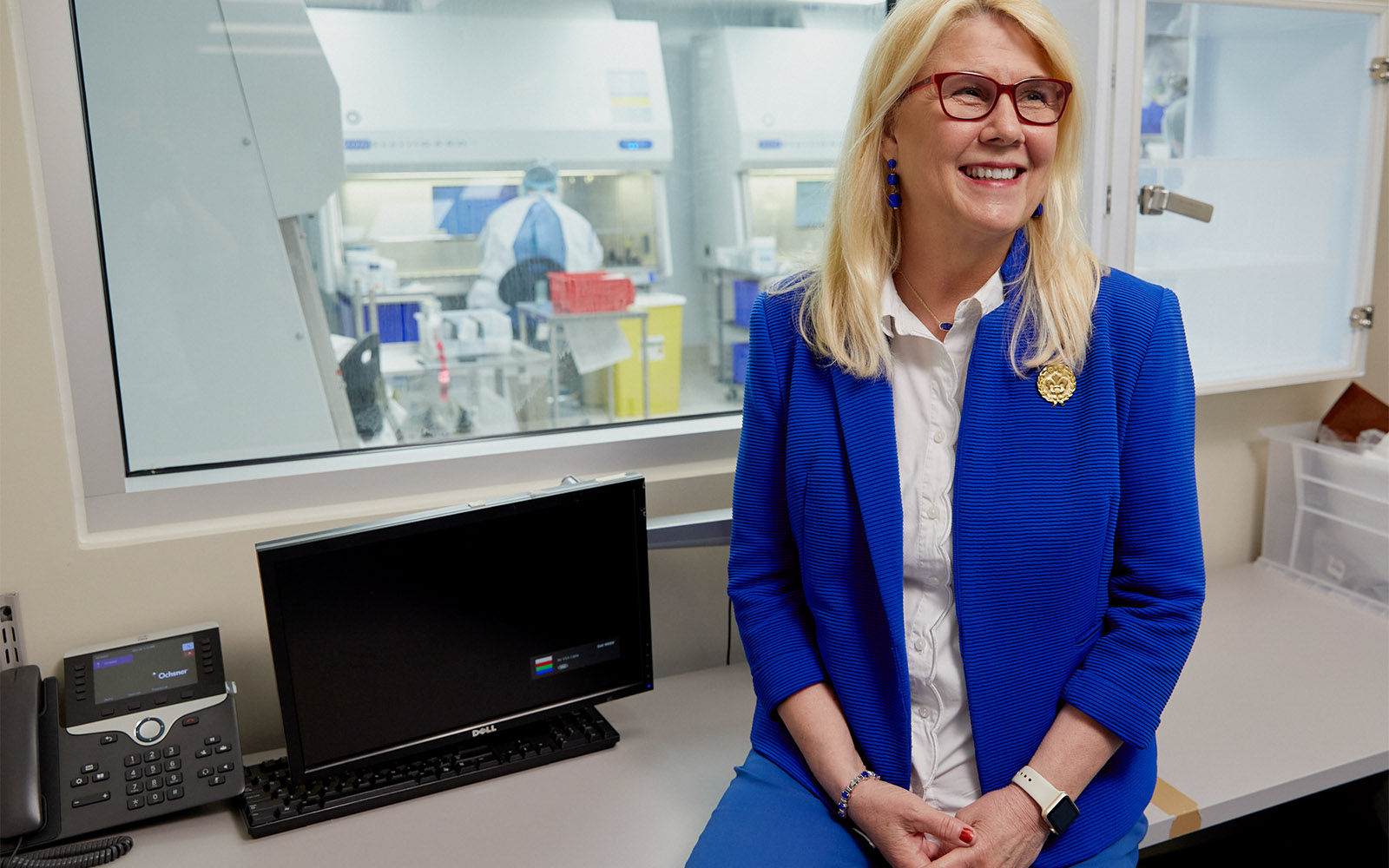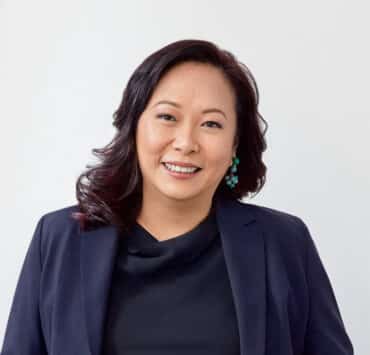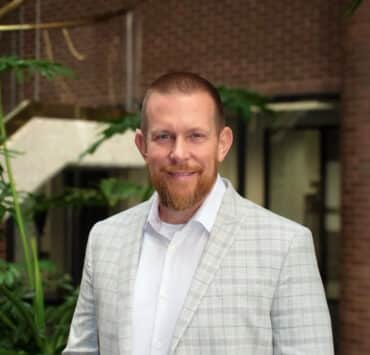While most college students were boating, waterskiing, or soaking up some sun at the beach during summer break, Debbie Simonson had other plans. Simonson signed up to spend her break at the National Hansen’s Disease Center located outside Baton Rouge.
The young student and aspiring medical professional lived on the compound. She spent her days working alongside nuns in the center’s pharmacy and learning about a physician’s research about adaptive accessories for amputees.
Although the hazard pay was nice, Simonson’s choice to give up summer with friends was a strategic move. She had previously done a stint with the Food and Drug Administration (FDA). That, combined with experience in public health, gave her unique and valuable experience. When graduation time came, Simonson had many potential employers calling on her.
The year was 1981. When a leader at Ochsner Health tried to recruit Simonson to join his hospital pharmacy team, she balked. But then, he said something that changed her mind. There was a nursing shortage, and pharmacists at the not-for-profit healthcare provider in the Gulf South were administering chemotherapy drugs and other medication in the cancer unit.
“I look for pain points. And then I work with all the resources I have to find a way to help.”
Debbie Simonson
“It was unusual,” Simonson says of the arrangement. “I was intrigued and I wanted to learn, so I went to work at Ochsner.”
Forty-three years later, Simonson has become a fixture inside the organization that has grown to include 46 hospitals and more than 370 health and urgent care facilities. “I came to work here, and I haven’t left because there have always been both innovation and opportunity,” she says. Today, Simonson is Ochsner Health’s vice president and chief pharmacy officer.
On August 29, 2005, Hurricane Katrina made landfall in New Orleans, bringing 175 mile-per-hour winds and devastation to the region, with 1,800 losses. Millions were left homeless. The state suffered hundreds of billions of dollars in economic loss. Its healthcare system was in shambles.
As the clinical manager at Ochsner, Simonson activated emergency orders and worked with her colleagues to manage the situation. But even after the emergency subsided, another set of problems arose. Nearly all retail pharmacies were closed. Tons of residents were displaced. The regional market decreased to about five hundred hospital beds.
Simonson and other Ochsner leaders worked overtime to create new systems that could help patients receive lifesaving medicines and other supplies without interruption. The emergency situation required bold leadership. Ochsner stepped up to purchase three hospitals that would have otherwise closed. “Our decision to buy and keep hospitals open after Katrina was critical because it meant we could keep healthcare local and keep people in New Orleans,” Simonson says.
Simonson is now supporting all of the facilities that are part of Ochsner Health. To find success, she must take on the mindset of a problem solver. “I look for pain points,” she says. “And then I work with all the resources I have to find a way to help.”
In 2023, the biggest pain point in the system was access. Simonson and her team put pharmacists inside Ochsner clinics so providers could see more patients. When the nursing shortage hit critical levels, she recommended they try a strategy she saw in action decades earlier—pharmacist to administer medication on the floor like she did in the 1980s.
Simonson and her team (which she refers to as a “lineup of rockstars”) addressed another need when primary care physicians reported problems keeping up with refills. The pharmacy created a standardized refill center that routes all requests to one inbox. The refill center coordinates all issues and sends orders to the retail pharmacy. In its first year, the refill center gave twenty-seven thousand hours back to Ochsner Health’s physicians.
“I came to work here, and I haven’t left because there have always been both innovation and opportunity.”
Debbie Simonson
Most recently, Ochsner’s pharmacy team is hearing concerns about access to medication. Providers and patients grow frustrated when insurance issues, health system limitations, or other factors cause delays. “If you have cancer, you don’t want to wait until a pharmacy benefit manager finally says you can have the drug you need,” Simonson says. Medication access is just the latest problem Simonson has to solve—and she will.
BD is one of the largest global medical technology companies in the world and is advancing the world of health by improving medical discovery, diagnostics, and the delivery of care. The company develops innovative technology, services and solutions that help advance both clinical therapy for patients and clinical process for health care providers. BD has more than seventy thousand employees and a presence in virtually every country around the world to address some of the most challenging global health issues. BD helps customers enhance outcomes, lower costs, increase efficiencies, improve safety, and expand access to health care. bd.com



